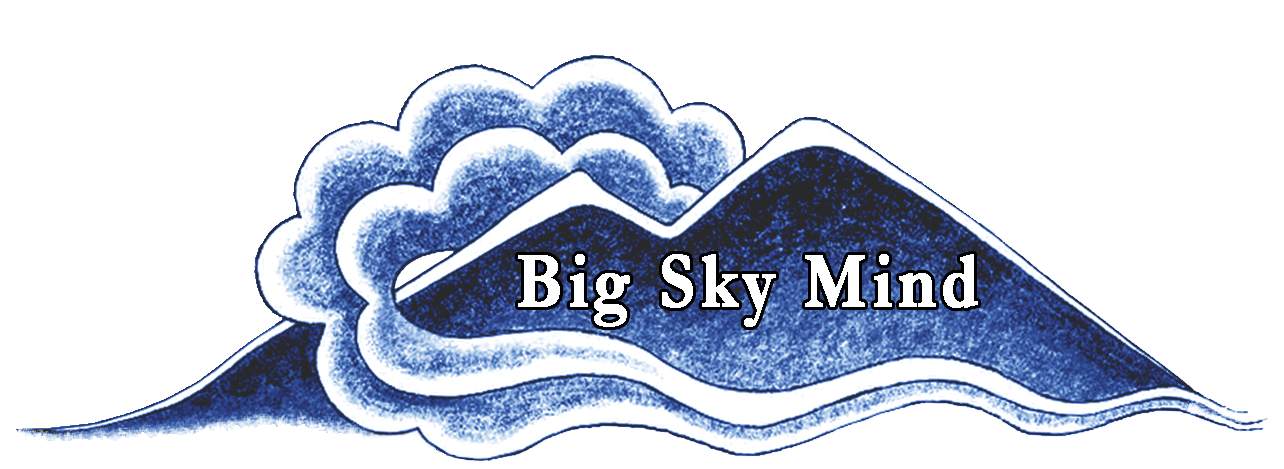Big Sky Mind 3rd Saturday Retreat - February 17, 2018
/This past Saturday we gathered for another of the 3rd-Saturday-of-the-month retreats we’ve been doing this past year. The theme of the last several retreats has been Mind Training. The text we’ve been using is The Great Path of Awakening.
The Fifth Point of Mind Training
Of the Seven Points of Mind Training, this Saturday we focused on the fifth point, “The Extent of Proficiency in Mind Training.”
The fifth point has four slogans:
1. All Dharma has a single purpose.
2. Of the two judges, rely on the principal one.
3. Always have the support of a joyful mind.
4. You are proficient if you can practice even when distracted.
The Great Path of Awakening includes a translation of the Tibetan text of the Seven Points as well as a commentary by a great 19th-century master, Jamgon Kongtrul. In addition to this text, Saturday we used the book by the remarkable contemporary Tibetan lama, Ringu Tulku, entitled merely Mind Training.
Evaluating the Practice—Explanation by Ringu Tulku
In his discussion of the fifth point entitled “Evaluating the Practice,” Ringu Tulku says, “When we have learned how to practice the Lojong [mind training] meditation, we need to assess whether we are carrying it out correctly and properly. This point gives us something to measure by.
Slogan 1:
Regarding the first slogan--which he translates “All dharmas agree at one point”--he comments,
“Every school and tradition agrees that the benefit of dharma practice is to reduce ego-clinging
and the illusion of self. This is the path, the goal and the purpose of our spiritual life.”
Slogan 2:
Of the Two Judges, rely on the principal one.
Ringu Tulku says “...in this training we need to develop faith and trust in our estimate of ourselves, regardless of what people around us think.”
Slogan 3:
Always be sustained by cheerfulness.
Ringu Tulku writes, “The effectiveness of our practice can be measured by looking at our mood.”
And “We can endure (setbacks) because we have a great end in mind: to benefit all sentient
beings. Remaining good-natured and enthusiastic shows that our efforts are succeeding.”
Slogan 4:
“You are well trained if you can practice even when distracted.”
Ringu Tulku says, “The training will be going very well if the demands and complications we
meet in everyday life turn our mind spontaneously to the (Mind Training) meditation.”
Further Studies
- In the course of the day, I referred to Dzongsar Khyentse’s teaching on Mind Training found on YouTube.
It can be found at 《Seven points mind training 01》Dzongsar Khyentse Rinpoche
- I also shared a brief reading from Seneca the Roman Stoic philosopher. In his
Epistle V., The Philosopher’s Mean, he writes to his friend:
“I commend you and rejoice in the fact that you are persistent in your studies, and that, putting all else aside, you make each day your endeavor to become a better man. I don’t merely exhort you to keep at it; I actually beg you to do so.”
Later, in this letter, Seneca writes,
“The first thing philosophy undertakes to give is fellow-feeling with men; in other words, sympathy and sociability...Our motto, as you know, is ‘Live according to Nature.’”
A bit further along in the letter we see this:
“I find in the writings of our Hecato that the limiting of desires helps also to cure fears: ‘Cease to hope,’ he says, ‘and you will cease to fear.’ But the chief cause of both these ills is that we do not adapt ourselves to the present, but send our thoughts a long way ahead.”
And finally
“...we...torment ourselves over that which is to come as well as over that which is past...The present alone can make no man wretched. Farewell.”
I wrote this thinking it might serve as a helpful reminder to those who attended, and a useful summary for those who weren’t able to join us this past Saturday.
I highly encourage everyone to study these resources, the books and videos mentioned, and to give the Mind Training practice a try. It might prove a very useful tool for you on your journey through this mysterious life.
Your friend on the path,
David
Big Sky Mind


